

In continuation of our two-hundred-year tradition of independent publishing, Crossroad proudly offers a variety of books with strong, original voices and perspectives on topics from spirituality and counseling to public theology and human sexuality. The viewpoints expressed in our books are not necessarily those of Crossroad or its employees.
The Crossroad Publishing Company
www.crossroadpublishing.com
2009 by M. T. Oates, Linda Ruf, and Jenny Driver, M.D.
All rights reserved. No part of this book may be reproduced, stored in a retrieval system, or transmitted, in any form or by any means, electronic, mechanical, photocopying, recording, or otherwise, without the written permission of The Crossroad Publishing Company.
Printed in the United States of America.
The text of this book is set in 11/14.5 Activa.
The display face is Benguiat Gothic.
Library of Congress Cataloging-in-Publication Data
Women of Opus Dei : in their own words / edited by M.T. Oates, Linda Ruf, and Jenny Driver.
p. cm.
ISBN-13: 978-0-8245-2425-8 (alk. paper)
ISBN-10: 0-8245-2425-X (alk. paper)
1. Opus Dei (Society) 2. Opus Dei (Society) Biography. 3. Women in the Catholic Church Biography. I. Oates, M.T. (Marie T.), 1962-II. Ruf, Linda. III. Driver, Jenny, M.D. IV. Title.
BX819.3.O68W66 2008
267'.182082 dc22
2008045317
1 2 3 4 5 6 7 8 9 10 14 13 12 11 10 09
Contents
Although the title of this book mentions Opus Dei, the personal stories contained in this book are, more than anything else, stories of personal conversion to Jesus Christ. These are not stories of perfect women without their daily struggles and their personal defects. The women in this book are just like all women. These are true stories about a variety of women who have found and committed themselves to a personal relationship with Jesus Christ all through traditional Catholic prayer, practices, and beliefs. The women in this book appear content with and well-versed in their faith. I would even say they come across as in love and passionate about it. Given some of the difficulties the Catholic Church has faced in recent years, some may find this fidelity and excitement about ones faith striking, perhaps even oxymoronic. Reading these stories reminded me of my own story and how a few women in love with their faith led me closer to Christ.
Over twenty years ago, when I was still a practicing Lutheran, I was interested in the Catholic Church, but as a historical and cultural phenomenon. I had never heard of the personal prelature called Opus Dei. As a young child I was raised to be an involved and practicing Lutheran. Faith was good. The key points of our family belief focused on honoring and loving God, and church was one more activity in my life. Like so many young people then and today, as I became a teenager I pulled away from good Christian virtue in some areas of my life. I became pro-choice, though certainly not all Lutherans are pro-choice. I ended up going to a Baptist college and, as fate would have it, I was given one of the few Catholics on campus as one of my roommates, along with a Baptist roommate. Both were strong in their faith and love of God and were good role models for me. They both helped me to continue practicing as a Protestant.
Once exposed to it, though, I admit that I was immediately attracted to the elegance and liturgy of the Catholic Church; it reminded me of my childhood Lutheran Church.
Moreover, my Catholic roommate impressed me with her commitment to get to Mass every Sunday even if she had been at a party late the night before, and her pro-life rationale slowly won me over. Through friendship, she and her mother a supernumerary member of Opus Dei basically challenged my intellect and will with their fervent Catholicism. Our conversations formed a big part of my intellectual growth during our four years together at college. I loved it!
Our deep conversations occurred as I took courses in my undergraduate major of art history and looked more closely at Martin Luthers legacy and teachings. The former led me to believe the Protestant split was more than anything else unfortunate, and the latter helped me realize Luthers body of work did not add up when contrasted with the Catholic Churchs teachings and history right at the time of Christ. Centuries of art and architecture inspired largely by Catholic faith brought me to appreciate the beauty of faith and Church history. While some critics prefer to focus on particular questionable events in Catholic Church history, I was impressed when I really looked more thoroughly at the role of the Church, taken as a whole, throughout history. I found that integrity, faith, and reason hung together.
I was also struck when I considered that there are many fallen-away Catholics, but I had never met anyone who claimed to be a fallen-away Lutheran. Why did the Catholic Church seem to stick with people? This helped lead me to the truth/reality that the Catholic Church was the one true Church.
I read much about what the Church taught and its core doctrinal points before I received the gift of faith to convert. So when the faith came (quietly), it was clear I had a choice to say yes or no. I came to realize that I should either enter the Catholic Church or I would probably live the rest of my life as a cultural Christian. The Catholic Church would be challenging for me to live in, but it was all of a piece. Its teachings had integrity, even if like all churches it was made up of sinners.
But if I wanted to go ahead with the beauty I had seen that was now obvious for me intellectually and aesthetically, I had to become a Catholic. The next part of my story, however, took a trajectory I never could have imagined for myself.
Since I found my Catholic faith through persons close to or in Opus Dei, I was familiar with Opus Dei. I even thought I might have a vocation to Opus Dei, because I liked that it could provide me with a framework of traditional Catholic practices and spiritual support from the committed faithful of Opus Dei. Sometime after I converted, I became engaged to be married. All the while, I grew in my new faith and received ongoing Christian formation with Opus Dei.
Several of my friends in Opus Dei at the time were numerary members, that is, celibate women. I had never conceived that I could ever have a celibate vocation. In fact, Id never had any interest in the idea. Now I was engaged to be married and was preparing for my wedding. I was thinking that I might have a vocation to be a member who could eventually get married, commonly referred to as a supernumerary. When someone mentioned that perhaps I should think about the possibility of having a celibate calling, I was aghast. I had other plans. I asked God, if this was what he wanted of me (and I was sure he didnt), that he make it really obvious.
The more I prayed, the more God let me see that against all that made sense in my life, or so I thought at the time, he was asking me to say yes to trying to be numerary. I broke off my engagement (and upset my family) to take the plunge. But I knew that it was Gods idea to try it and that if I didnt make the right choice, I wouldnt have peace.
It must have been what God had planned, though, because I have had peace since the day I said yes in 1988.
Reading the stories in this book reminded me of my own unlikely and yet fulfilling path in the Catholic Church. One of the things I love about the Catholic Church teachings, and which I do not think is well enough understood in our society today, is that women are equal to men, but they are not the same. As St. Josemara noted, women have special insights that are valuable and needed in all sectors of professional work. I find Opus Deis emphasis on this Catholic teaching extends radical equality to people in whatever work they do daily. All work has value and is important in Gods eyes, especially work that has people caring for each others well-being.
Next page
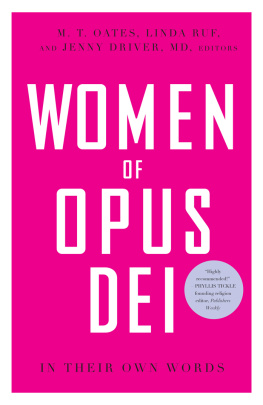

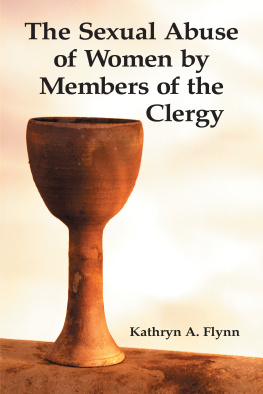
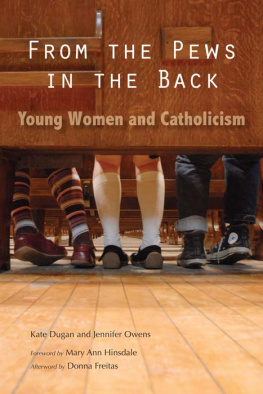
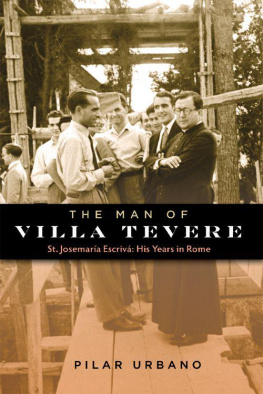
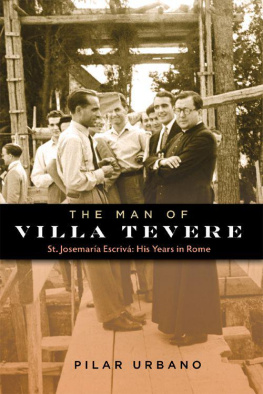
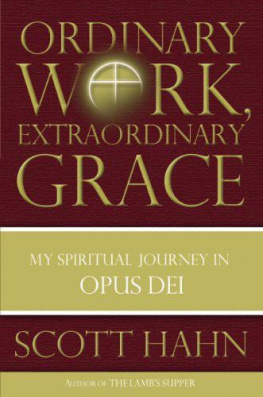
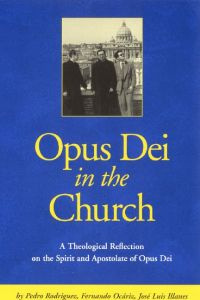
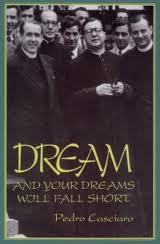
![Scott Hahn [Inconnu(e)] - Ordinary Work, Extraordinary Grace: My Spiritual Journey in Opus Dei](/uploads/posts/book/134758/thumbs/scott-hahn-inconnu-e-ordinary-work.jpg)


